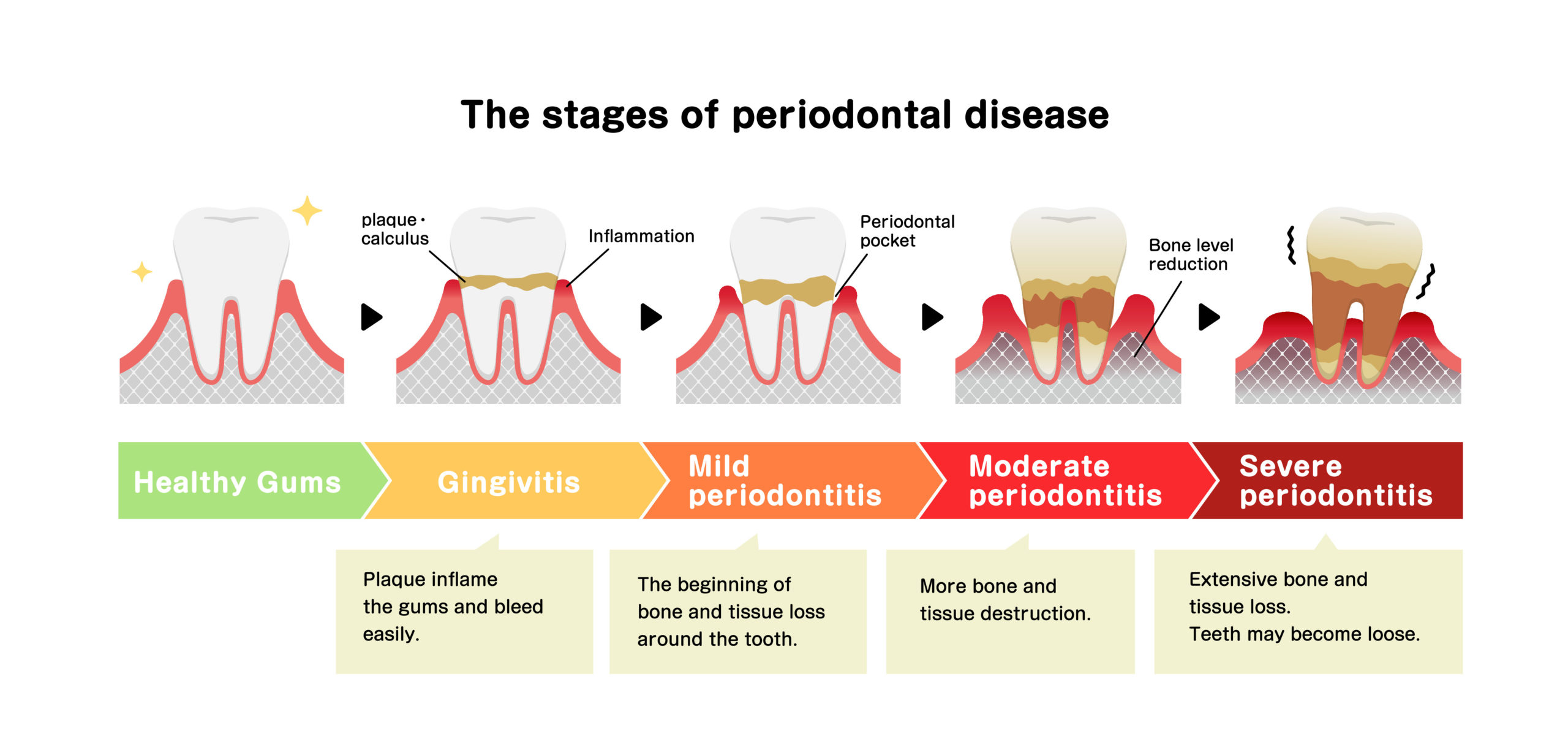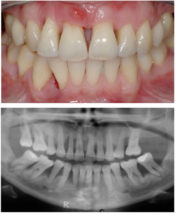Periodontitis
Periodontitis is an immuno-inflammatory disease, which is triggered by oral microorganisms contained in dental plaque. In periodontitis, these mibrobes infiltrate the gum tissue and help sustain inflammation. Periodontitis often progresses without causing any pain or symptoms until the later stages at which point the disease is often very advanced and treatment is less effective.
Leads to bone loss
Tooth loss
Formation of periodontal pockets
Accumulation of plaque


Early intervention is key. Our team uses advanced techniques to slow or stop the disease and help you maintain long-term oral health.
Treatment for Periodontal Disease
Our periodontal treatments are personalized based on your disease severity. Common techniques include:
More severe cases of periodontal disease may require surgical treatment in order to eliminate the pockets, thoroughly clean the root surfaces, and reshape the bone contour. Dr. Fokam offers a highly effective and gentle approach to surgery. Patients benefit from his use of the surgical microscope that allows him to see details of the teeth and root surfaces up to 26 times more clearly than with the naked eye alone. Dr. Fokam can therefore remove deposits and the bacterial source of the infection with significantly greater accuracy and precision which will provide faster healing times and a more comfortable experience. All periodontal surgical procedures are well tolerated under local anesthesia and require minimal recovery time. Oral or IV sedatives can also be used to achieve a higher state of relaxation depending on the needs of an individual patient. Employs the use of cutting-edge techniques and materials in order to recreate some of the tissue lost due to periodontal disease, and effectively reverse the damage caused by gum disease. Regenerative procedures can be used to stimulate the growth of new bone. This growth increases the height of the bone around the tooth, giving the tooth more support, and increases the amount of attachment around the root of the tooth. Regenerative materials are placed into the defects created by gum disease to promote the growth of new bone and attachment around the teeth. To decrease your chances of other health problems associated with periodontal disease, it's important to continue your daily oral hygiene routine, along with professional maintenance care. Dr. Fokam and his team always favour a minimally invasive approach whenever possible for the treatment of all cases periodontal disease. Dr. Fokam uses a surgical microscope with a high magnification that allows him to better identify and remove even the tiniest amount of sub-gingival calculus, or damages. Osseous Surgery/Pocket Reduction

Tissue Regeneration


Cutting-Edge Techniques
Periodontal Maintenance
Although you’ve completed periodontal treatment, which included non-surgical and surgical therapies, and the disease is now under control, this doesn’t mean that you’re healed forever.
Periodontal treatment corrects the effects of the disease – gum detachment and bone deformities – to restore your periodontal health, but it doesn’t change your susceptibility. Without continuing maintenance care, periodontal disease can recur.

Our hygienists and periodontists will design a long-term maintenance plan to protect your gums and implants.






